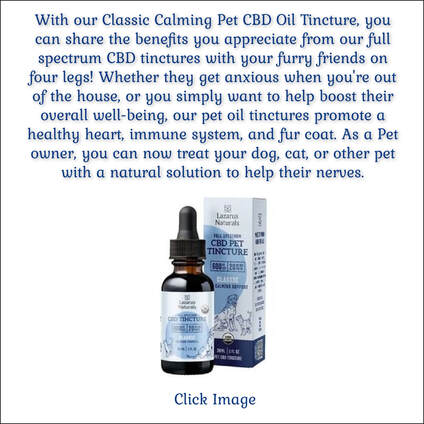
By Wilson’s Syndrome Thyroid
Restored organ function with just plants/herbs? Some people seem to have the impression that since herbs aren't regulated like drugs and don't require a prescription like drugs, they can't make much of a difference. That's a misconception.
Actually, the regulation of drugs began (in the early 1900's) in large part because of a problem with the safety and efficacy of man-made drugs, not herbs. Man-made drugs that lacked efficacy and often contained addictive or harmful substances started showing up in the market. Drug regulation (like FDA-approval and the requirement of a doctor's prescription) was instituted to protect the public from ineffective and potentially dangerous patented (commercially valuable) man-made drugs.
Drug regulation was never meant to show that herbs don't work and that drugs do, but to see that drugs are safe enough and worthwhile enough to go on and stay on the market. It was already known that herbs are safe enough and worthwhile enough to be on the market. That's why food substances (such as herbs) that are already present in the food supply are not regulated like drugs are. The FDA does require proper labeling on herbs, however, as it does on all foods.
Why would companies be so anxious to introduce man-made drugs? One big reason is that they are patentable because they are not already found in nature. A patent gives a company exclusive rights to market a drug, and a chance to make a lot of money. However, tampering with nature can be very risky. In fact, many big laws in drug regulation were signed into law only after large-scale drug disasters.
Restored organ function with just plants/herbs? Some people seem to have the impression that since herbs aren't regulated like drugs and don't require a prescription like drugs, they can't make much of a difference. That's a misconception.
Actually, the regulation of drugs began (in the early 1900's) in large part because of a problem with the safety and efficacy of man-made drugs, not herbs. Man-made drugs that lacked efficacy and often contained addictive or harmful substances started showing up in the market. Drug regulation (like FDA-approval and the requirement of a doctor's prescription) was instituted to protect the public from ineffective and potentially dangerous patented (commercially valuable) man-made drugs.
Drug regulation was never meant to show that herbs don't work and that drugs do, but to see that drugs are safe enough and worthwhile enough to go on and stay on the market. It was already known that herbs are safe enough and worthwhile enough to be on the market. That's why food substances (such as herbs) that are already present in the food supply are not regulated like drugs are. The FDA does require proper labeling on herbs, however, as it does on all foods.
Why would companies be so anxious to introduce man-made drugs? One big reason is that they are patentable because they are not already found in nature. A patent gives a company exclusive rights to market a drug, and a chance to make a lot of money. However, tampering with nature can be very risky. In fact, many big laws in drug regulation were signed into law only after large-scale drug disasters.
|
For example, the 1938 Food, Drug, and Cosmetic Act was propelled through Congress and into law after a public outcry when a Tennessee drug company put out a new pediatric antibiotic elixir (which contained a solvent similar to antifreeze) that resulted in the death of over 100 people, many of them children.
Yes, herbs can have medicinal effects on the body. Herbs have been used for centuries, and were the medicines doctors and pharmacists used before patented drugs came along. Many prescription drugs on the market today still have as their primary ingredient compounds extracted from plants. |
Interestingly, doctors in other countries that are experienced with herbs shake their heads at the American mentality. They laugh that Americans will take an herb that has very beneficial properties and that is nontoxic and then try to isolate the "active ingredient", as if there is only one. The other compounds in the plants that are discarded are apparently very beneficial because the isolated ingredient often has less restorative effects and causes much greater side effects than the herb itself.
Why would Americans do that? One reason is that a single, isolated ingredient can be patented as it is or with a slight modification; whereas, a whole plant cannot be.
Whole plants
• can be more beneficial
• can have fewer side effects
• are not as profitable
Isolated ingredients
• can be less restorative
• have greater side effects
• are more profitable (because of patenting and advertising)
Another issue is that isolated ingredients might be very effective at treating a specific symptom but may not be enough by themselves to correct an underlying problem. This actually makes them even more profitable.
Whole plants
• can be more beneficial
• can have fewer side effects
• are not as profitable
Isolated ingredients
• can be less restorative
• have greater side effects
• are more profitable (because of patenting and advertising)
Another issue is that isolated ingredients might be very effective at treating a specific symptom but may not be enough by themselves to correct an underlying problem. This actually makes them even more profitable.
When patients have symptoms, they want them to go away. Many times the symptoms are so bad that even if they don't go away forever, just having them go away for a few hours would be a wonderful relief. Paradoxically, patients can sometimes be more grateful to have their symptoms eased for a time, rather than cured completely.
When their symptoms go away with a drug and then come back when the treatment is stopped, it can confirm in the patients' minds that there really is something wrong and that the only thing that stands between them and awful symptoms is the drug. Patients can become very grateful to the doctors and for the drug even though, or maybe even because they are dependent on them (often for life).
When their symptoms go away with a drug and then come back when the treatment is stopped, it can confirm in the patients' minds that there really is something wrong and that the only thing that stands between them and awful symptoms is the drug. Patients can become very grateful to the doctors and for the drug even though, or maybe even because they are dependent on them (often for life).
On the other hand, when patients' symptoms get better with natural medicines and remain improved after the treatment is stopped, patients can sometimes conclude, "Well, maybe I didn't really have a problem," or, "I guess my body finally overcame it." And outside observers such as family members and doctors might conclude, "Well, you must have not really had a problem." Or, "You must have gotten better by yourself or because of a placebo reaction," even though they had been sick for years and didn't have a placebo reaction with all the other treatments they had tried.
Interestingly, it's gotten to the point that many doctors and patients don't consider it real illness or real medicine unless it's "treating the symptoms for life". But how much more real is treatment that actually corrects illness and restores health to normal so that the symptoms actually stay gone?
By focusing on single molecules and treating symptoms for life, modern medicine can often sound very detailed about "what's wrong" (diagnosis) and tests, yet be very weak on treatment, or actually correcting the problems. On the other hand by focusing on whole plants (and other natural substances) that can restore health, restorative medicine is very big on treatment but it's often difficult to say how all the ingredients in a plant worked together in the body to actually correct whatever may have been wrong.
Interestingly, it's gotten to the point that many doctors and patients don't consider it real illness or real medicine unless it's "treating the symptoms for life". But how much more real is treatment that actually corrects illness and restores health to normal so that the symptoms actually stay gone?
By focusing on single molecules and treating symptoms for life, modern medicine can often sound very detailed about "what's wrong" (diagnosis) and tests, yet be very weak on treatment, or actually correcting the problems. On the other hand by focusing on whole plants (and other natural substances) that can restore health, restorative medicine is very big on treatment but it's often difficult to say how all the ingredients in a plant worked together in the body to actually correct whatever may have been wrong.

















